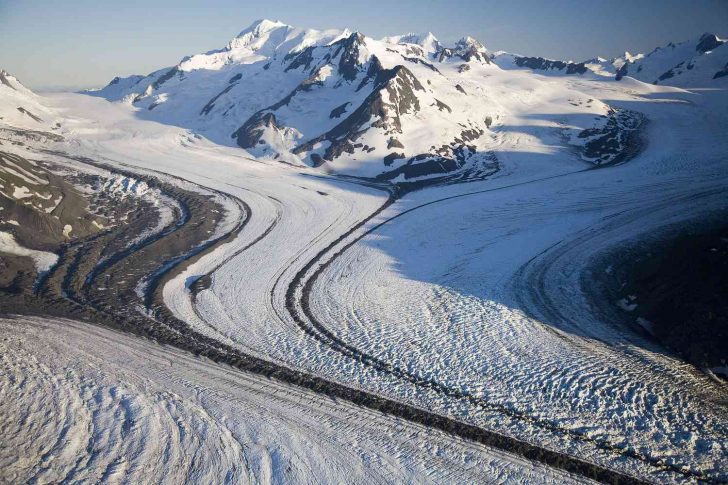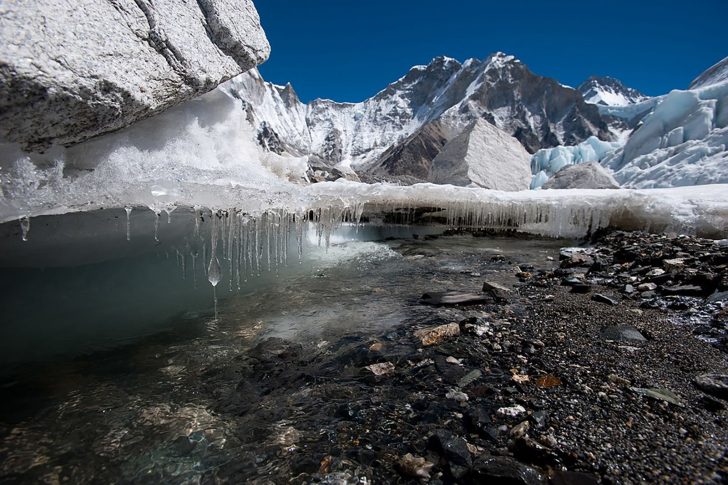The impact of climate change on our planet is becoming more evident every day. One of the most significant effects is the fast extinction of the world's mountain glaciers, and recent studies show that these glaciers may disappear by the end of this century. This extinction will not only have local effects. But its global impact will be felt by all of us.
Understanding the impact of this extinction on our environment, economy, and future generations is crucial for us to act now on climate change.
What Are Mountain Glaciers?
Mountain glaciers are large masses of ice formed on high-altitude mountains and in Arctic regions. These glaciers act as water storage, meltwater sources, and weather regulators. They are home to various flora and fauna species, thus making them some of the world's most biodiverse ecosystems.

US Weekly / According to studies, mountains across the globe will have “no glaciers at all” by the end of the 21st century.
Mountain glaciers are also the primary source of fresh water for millions of people worldwide.
The Extinction of Mountain Glaciers
So, the extinction of mountain glaciers is primarily caused by climate change. Rising global temperatures cause glaciers to melt at a faster rate than they can accumulate ice, leading to their eventual retreat and disappearance. It is estimated that two-thirds of mountain glaciers in Peru will disappear in the next 30 years.
In the Swiss Alps, glaciers have lost 10% of their mass in the last five years alone. The loss of glaciers will impact the freshwater supply of nearby communities, increase the chances of avalanches, and leave the mountain ecosystem barren.

Elle / The climate change crisis is the primary reason for the anticipated glacier extinction.
The Global Impact of Glacier Extinction
The extinction of mountain glaciers will have a ripple effect on the entire planet. As mountain glaciers melt, they pour their fresh water into rivers, thereby providing water to hundreds of millions of people and supporting agriculture and energy production.
With less snow and ice, mountains reflect less sunlight, and the earth absorbs more energy, causing more global warming. The loss of biodiversity will also have long-term consequences for the world's ecosystems, as many species will not be able to adapt to a rapidly changing environment.
What Can We Do?
The extinction of mountain glaciers is a stark reminder that climate change is a global emergency. If we want to prevent further damage, we need to act now.

Gui / Pexels / If we take collective measures along with the government, we can be in a position to save mountain glaciers.
Governments and corporations must shift towards cleaner and more sustainable energy sources, and individuals can reduce their carbon footprint by making small changes in their daily lives.
Thus, the extinction of the world's mountain glaciers is one of the most alarming signs of climate change. As we continue to ignore the impact of our actions on the environment, we risk further damage to the planet we all share.
We must prioritize responsible usage of natural resources, reduction of carbon footprint, and sustainable lifestyles. While it is never too late to act, the longer we wait, the more irreversible the damages will become.








